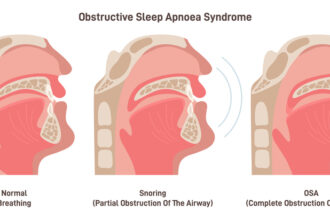Higher cardiorespiratory fitness levels in older adults are associated with preserving various essential cognitive abilities that often decline with age, according to research recently published in the British Journal of Sports Medicine. This connection remains robust regardless of major cognitive decline risk factors: age and the presence of the high-risk APOE4 gene, as indicated by the study findings. Cardiorespiratory fitness, a physiological measure of aerobic capacity, can be enhanced through regular aerobic exercises. While previous studies have shown a link between cardiorespiratory fitness and a reduced risk of age-related cognitive decline and dementia, the specific cognitive functions affected were not clearly understood.
The research aimed to determine whether there was a correlation between cardiorespiratory fitness and fundamental cognitive performance areas in 648 cognitively healthy individuals aged between 65 and 80 (with an average age of 69). Cardiorespiratory fitness was evaluated based on the maximum oxygen uptake (VO2 max) recorded during an incremental treadmill running test. Meanwhile, cognitive capabilities were measured using a comprehensive set of validated neuropsychological tests conducted over two days. The assessments covered five cognitive domains: processing speed, working memory, visuospatial processing, episodic memory, and executive function/attentional control, which includes skills related to planning and organisation.
Most participants were women (461; 71%), with an average of 16 years of education. Approximately 15% reported using beta-blockers, medications typically prescribed for heart conditions. The average VO2max observed among the participants was 21.68 ml/kg/min. For context, a healthy VO2max range for men is typically between 30–40 ml/kg/min; for women, it is 25–35 ml/kg/min. Among the 640 participants whose genetic profiles were analysed, 174 (27%) were carriers of the APOE4 gene.
As anticipated, older age correlated with a decline in performance across all cognitive domains assessed, considering factors such as sex, years of education, and body mass index (BMI). Conversely, higher educational levels were linked to better performance. Significantly, a higher cardiorespiratory fitness level was consistently associated with improved performance across all cognitive domains evaluated, regardless of the participant’s age or APOE4 gene status.
The study also found that the positive impact of cardiorespiratory fitness on cognitive performance was more pronounced among women, individuals with fewer years of education, and those on beta-blockers, particularly in the domains of processing speed and executive function/attentional control. It is important to note that this study is observational; thus, it does not establish a cause-and-effect relationship. The researchers acknowledged that not all cognitive areas were evaluated—for instance, language abilities—and that all participants were relatively inactive, which limited the spectrum of fitness levels observed.
However, the researchers propose several mechanisms through which aerobic fitness might enhance cognitive function, including improved cerebral blood flow, reduced oxidative stress, new synaptic connections, neuron growth, and alterations to neurotransmitter systems and the structure of grey and white matter in the brain. Psychosocial factors related to cardiorespiratory fitness, such as enhanced mood, reduced fatigue, and better sleep quality, also play a role in cognitive functioning.
In conclusion, the study underscores the significance of cardiorespiratory fitness as a critical health factor in maintaining comprehensive cognitive function in older adults. Further exploring the factors moderating this relationship could provide insights for developing personalised exercise regimes to optimise mental health during ageing.
More information: Lauren E Oberlin et al, Cardiorespiratory fitness is associated with cognitive function in late adulthood: baseline findings from the IGNITE study, British Journal of Sports Medicine. DOI: 10.1136/bjsports-2024-108257
Journal information: British Journal of Sports Medicine Provided by BMJ Group








